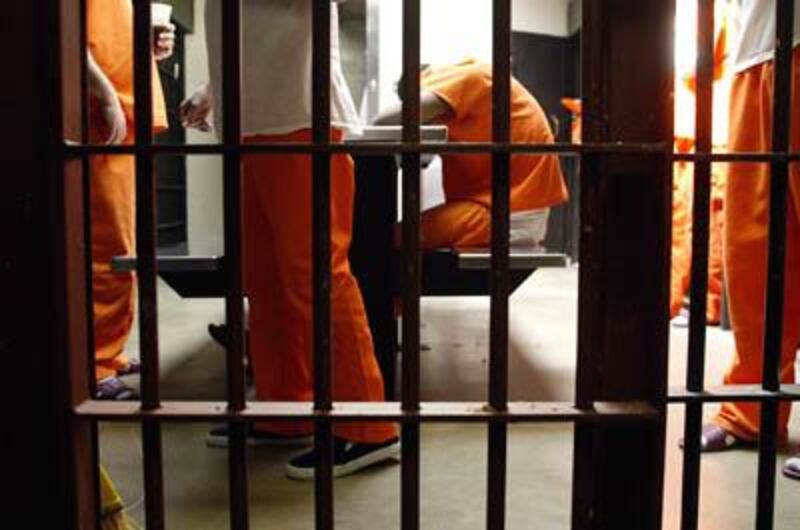Two years after Illinois became the first state in the nation to eliminate cash bail, the Trump administration is threatening to revoke federal funding from local and state governments that allow cashless bail.
“As president, I will require commonsense policies that protect Americans’ safety and well-being by incarcerating individuals who are known threats,” President Donald Trump said in an executive order he signed Monday. “It is therefore the policy of my administration that federal policies and resources should not be used to support jurisdictions with cashless bail policies, to the maximum extent permitted by law.”
The executive order directs U.S. Attorney General Pam Bondi to submit a list of states and local jurisdictions that have, in the attorney general’s opinion, “substantially eliminated cash bail as a potential condition of pretrial release from custody for crimes that pose a clear threat to public safety and order, including offenses involving violent, sexual, or indecent acts, or burglary, looting or vandalism.”
:quality(70)/cloudfront-us-east-1.images.arcpublishing.com/shawmedia/X7KJTJYO25FZHD2JRDVI3JN2QA.jpg)
The Illinois Network for Pretrial Justice condemned the executive order.
“What the President is trying to do is terrifying, both for safety and for democracy,” the group said in a statement. “We are proud of the elected officials in Illinois for standing up against it. Flooding communities with masked agents and threatening one of our state’s most effective civil rights achievements, passed after years of advocacy from communities across the state, is the hallmark of a leader who cares only about his own power. The Pretrial Fairness Act has made Illinois safer and eliminated a system that privileged the wealthy. We are proud to live in a state where leaders won’t acquiesce to his attempts to send us back.”
The Illinois Pretrial Fairness Act went into effect in September 2023 after the Illinois Supreme Court, in a 5-2 ruling, overturned a ruling by a Kankakee County judge that the law ending cash bail was unconstitutional.
:quality(70)/cloudfront-us-east-1.images.arcpublishing.com/shawmedia/TFTGLE7UKFCOHDC5ITTLOJOQ7E.JPG)
The legislation, part of the SAFE-T Act,established a system of “pretrial release” where judges decide whether to detain a person based on the circumstances of their case rather than their ability to pay bail.
Under the pretrial provision of the SAFE-T Act, a defendant will undergo a detention hearing if prosecutors file a petition to deny their jail release.
At the detention hearing, a judge must first determine if the defendant is charged with an offense eligible for detention under the law.
Secondly, the judge must determine if the defendant is either a danger to the community or a flight risk, or both.
Thirdly, a judge must determine if a defendant is a danger to the community or a flight risk, are there conditions that can mitigate those factors, such as electronic monitoring.
The judge will make a decision on whether someone stays in jail (with no ability to pay their way out) based on information provided to them by the prosecutors and the defense attorneys at the detention hearing
Opposition to SAFE-T Act
Thomas Cunnington, chief judge of the 21st Judicial Circuit of Iroquois and Kankakee counties, had said in his ruling in 2023 the Illinois Supreme Court determined the administration of the justice system is an “inherent power of the courts” and the setting of bail falls within that administrative power.
Cunnington said the “appropriateness of bail rests with the authority of the court and may not be determined by legislative fiat.”
The state’s Supreme Court overruled that argument.
Almost 60 prosecutors across Illinois had challenged the SAFE-T Act by filing lawsuits against Gov. JB Pritzker, Illinois Attorney General Kwame Raoul and others.
Those lawsuits were consolidated into one case that landed in Cunnington’s courtroom.
The lead prosecutors on the case included Kankakee County State’s Attorney Jim Rowe, Will County State’s Attorney James Glasgow and Kendall County State’s Attorney Eric Weis.
Shaw Local News Network reporter Felix Sarver contributed to this report.

:quality(70)/author-service-images-prod-us-east-1.publishing.aws.arc.pub/shawmedia/4874e1d5-91ae-4f41-9dee-92d8e733e407.jpg)